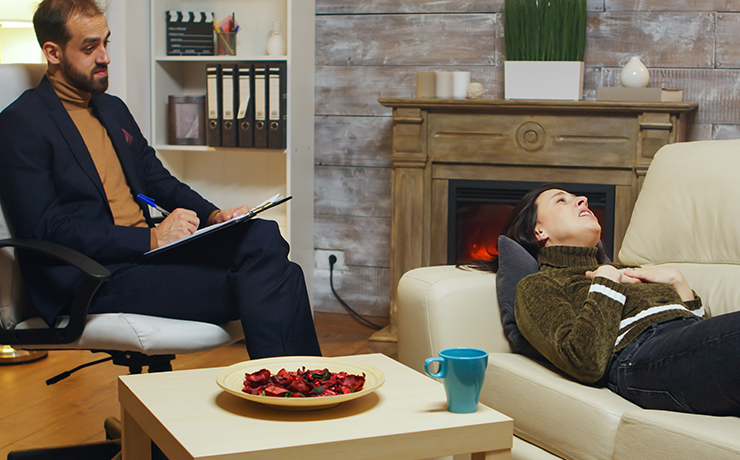Some people say, “I’m fine,” like it’s a reflex. Their voice doesn’t quite match the words. Their eyes flicker with something unspoken. They show up, smile, laugh when needed, check all the boxes—and quietly unravel when no one’s watching.
For those who carry pain like a hidden scar, there’s something worth knowing: you don’t have to wait for everything to fall apart before reaching for support. Intensive Outpatient Programs, often called IOPs, exist for those in-between moments—when things aren’t terrible but definitely aren’t okay either.
IOPs don’t ask you to give up your life. They don’t require you to pause everything or check into a hospital. They’re not about labels. They’re about real people finding real help, even while still going to work, raising kids, or showing up to life with a tired smile.
Why IOP Might Be the Right Fit
Many people think support is only for emergencies. But there’s a whole middle ground where most folks quietly exist—overwhelmed but functioning. That’s exactly where IOPs come in.
They’re structured programs designed to help people deal with stress, anxiety, depression, trauma, or life transitions—without having to step away from everything else. You don’t need to wait for a “rock bottom.” You just need to want things to feel different.
Here’s what makes IOPs a lifeline for people who often feel invisible in their struggle:
- Flexible but focused: Most IOPs offer sessions multiple times a week, often in the evening, so you can attend without rearranging your life.
- Not just talk, but tools: These sessions don’t just skim the surface. You learn strategies that help you cope, manage, and grow.
- Shared strength: Group sessions connect you with others walking through something similar. You’re not alone, even if it feels that way.
- Still, you are just supported: You keep showing up to your life but with more clarity, stability, and hope.
The Mask of “I’m Fine”
“I’m fine” is something people say when they don’t want to be a burden when they’ve learned to minimize their feelings. When they think asking for help is a weakness or, worse, failure.
But the truth is, carrying pain alone isn’t strength. It’s survival. And while survival has its place, it’s not a place to stay forever.
There’s something deeply exhausting about pretending all the time to hold it together on the outside while falling apart on the inside. When your body aches from tension, when sleep doesn’t come easy, when small things feel heavy—those are signs, not of weakness, but of being human.
And humans aren’t meant to do it all alone.
What IOP Can Give You
Sometimes, the biggest gift you can receive is space. Space to breathe. Space to speak. Space to feel without judgment. IOPs offer that space—and fill it with guidance, structure, and understanding.
Here’s what many people find after starting an IOP:
- Clarity: When your mind feels tangled, having a structured space to unpack it can bring light into dark corners.
- Relief: The relief of not having to pretend. Of being seen. Of hearing “me too” from someone else.
- Growth: Not forced change, but gentle steps toward feeling better, day by day.
- Community: Even if you’re not a “group person,” being around others who understand can feel like warmth in a cold season.
It’s Not About What’s Broken
One of the biggest myths is that you need to be “broken” to need help. But most people in IOPs aren’t broken. They’re tired. They’re worn down by grief, anxiety, relationships, work, or just the noise of everyday life. They’ve done a good job keeping it all together, but they’re ready for more than just “fine.”
It’s not about what’s wrong with you. It’s about what you deserve: support, care, and a chance to breathe without apology.
How It Works
The structure of IOP varies, but here’s a common experience:
- 3–5 sessions a week: Usually lasting 2–3 hours each.
- A mix of group and individual support: So you get both community and personal attention.
- Led by trained professionals: People who listen with care, not judgment.
- Time-limited: IOPs typically run for 6–12 weeks, enough time to make progress without overwhelming you.
They fit into your life—not take it over. For many, that balance is the key.
What You Might Notice
People who attend IOPs often notice small shifts before big ones:
- The fog starts to lift.
- Mornings aren’t quite so heavy.
- You cry, and it actually helps.
- You speak, and someone really listens.
- You hear yourself say something honest and realize you’re not alone.
That’s when healing begins—not with fireworks, but with soft moments of being real.
You Deserve Better Than “I’m Fine”
For years, maybe “I’m fine” was enough. It got you through the meeting, the dinner, the birthday, the weekend. But deep down, you know there’s more to life than coping.
IOP isn’t a last resort. It’s a quiet step toward more. Toward feeling steady. Toward understanding yourself. Toward building tools, so you don’t just keep going—you begin to feel okay again.
Not perfect. Not fixed. Just okay—and slowly, better than okay.
When You’re Ready, It’s There
You don’t need to announce it. You don’t need to explain everything. You don’t need to be falling apart. You just need a whisper of willingness—the kind that says, “Maybe I deserve more than this.” And that whisper? That’s enough to start.
IOPs aren’t magic, but they’re real. They’re practical. They meet you where you are. They can make a difference for people who are always saying, “I’m fine,” but hoping, quietly, that someone sees through it.
Final Thoughts
You don’t need to keep holding everything alone. If you’re tired, you’re not weak. If you’re overwhelmed, you’re not broken. You’ve done the best you can, and maybe now it’s time for something more.
Not because you’re failing—but because you’re ready for a life that feels less heavy. IOP is one option. A real one. A human one. For anyone tired of pretending everything’s okay.



